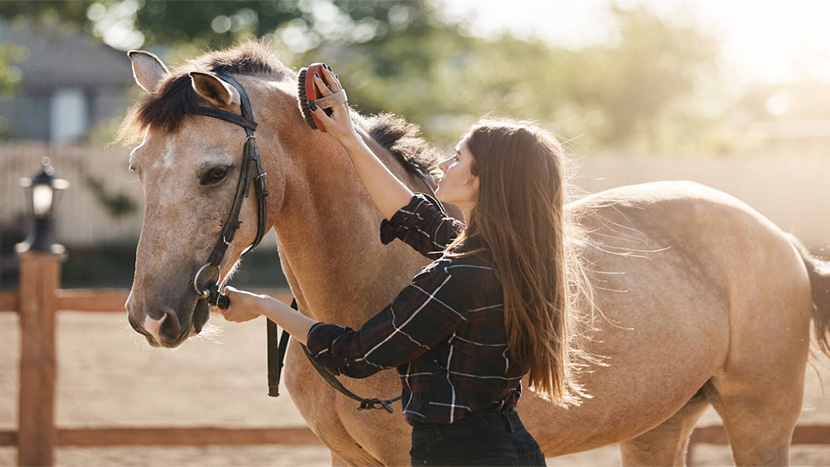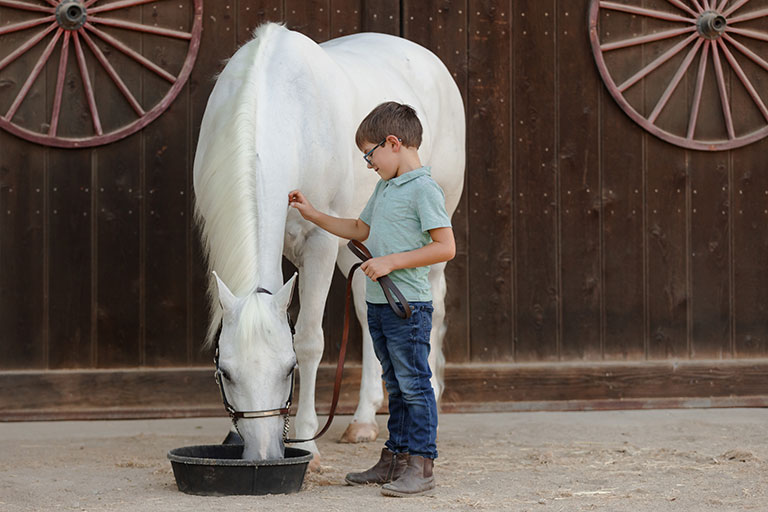As horses age, they undergo various physiological changes, and one common issue is muscle loss in senior horses. This can significantly affect their mobility, strength, and overall quality of life. Understanding the causes and potential solutions is crucial for maintaining the health and well-being of your cherished equine companions.

What Causes Muscle Loss in Senior Horses?
Several factors contribute to muscle loss in senior horses. Aging naturally leads to a decrease in muscle mass and strength. Additionally, nutritional deficiencies, lack of exercise, and certain medical conditions can exacerbate this problem.
The Role of Nutrition
Proper nutrition plays a vital role in maintaining muscle mass. As horses age, their digestive efficiency may decline, leading to insufficient nutrient absorption. Ensuring a balanced diet rich in protein, vitamins, and minerals is essential for combating muscle loss.
For more detailed advice on feeding senior horses, you might consider exploring this external resource.
Importance of Regular Exercise
Exercise is crucial for maintaining muscle strength and preventing atrophy. Senior horses benefit from regular, low-impact activities that cater to their physical capabilities. For more information on suitable exercise routines, consider visiting exercise for older horses.
Common Medical Conditions
Certain medical conditions, such as arthritis or equine metabolic syndrome, can contribute to muscle loss. Regular veterinary check-ups are essential to diagnose and manage these conditions effectively.
Signs of Muscle Loss in Senior Horses
Recognizing the signs of muscle loss is key to early intervention. Common signs include a noticeable decrease in muscle mass, especially along the topline, increased prominence of bones, and difficulty performing tasks that were previously easy for your horse.
Monitoring Body Condition
Regularly assessing your horse’s body condition can help you detect changes in muscle mass. A body condition scoring system can be an effective tool for this purpose.
Preventive Measures and Solutions
Preventing and addressing muscle loss involves a combination of proper nutrition, appropriate exercise, and medical care.
Optimizing Diet
Ensuring that your horse receives a diet tailored to their specific needs is critical. Consider consulting with an equine nutritionist to develop a customized feeding plan.
Implementing an Exercise Regimen
Develop an exercise routine that maintains muscle mass without overexertion. This might include activities like walking, trotting, and stretching exercises. You can find more on this at stretching routines.
Veterinary Support
Regular veterinary visits are crucial for monitoring your horse’s health and addressing any medical issues that may contribute to muscle loss.
Adjusting Care for Aging Horses
As your horse ages, their care requirements will change. Adapting your management practices to accommodate these changes is essential for their well-being.
Environmental Adjustments
Providing a comfortable living environment with appropriate bedding is important. More information on suitable options can be found in this bedding guide.
Social Considerations
Older horses may benefit from companionship with other horses. Social interaction can improve their mental health and encourage physical activity.
Conclusion
Muscle loss in senior horses is a common issue that can be managed with proper care and attention. By understanding the underlying causes and implementing effective solutions, you can help your horse maintain their strength and enjoy a healthy, fulfilling life.
For further insights into caring for older horses, you can also refer to this informative article.

FAQ
What are the main causes of muscle loss in senior horses?
The primary causes include aging, nutritional deficiencies, lack of exercise, and certain medical conditions.
How can I prevent muscle loss in my senior horse?
Prevention involves a balanced diet, regular low-impact exercise, and routine veterinary care.
What signs should I look for to identify muscle loss?
Look for a decrease in muscle mass, visible bones, and difficulty performing usual tasks.
This article contains affiliate links. We may earn a commission at no extra cost to you.
